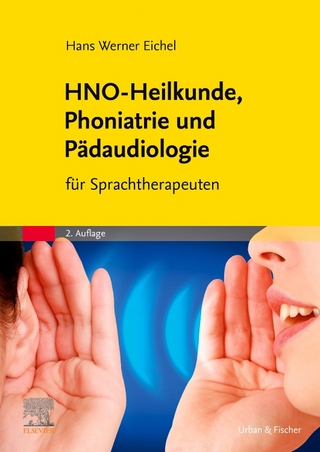
Treatment of Autism Spectrum Disorders
Brookes Publishing Co (Verlag)
978-1-59857-053-3 (ISBN)
- Titel erscheint in neuer Auflage
- Artikel merken
This practical, accessible text introduces pre-service SLPs to 12 evidence-based interventions that improve the communication and social skills of people with autism spectrum disorders. Enhanced with video clips, case studies, and learning activities.
For SLPs preparing to work with children who have autism spectrum disorders, selecting effective interventions for communication and social challenges is critically important. This accessible textbook gives SLPs the in-depth knowledge they need to evaluate, choose, and apply today’s best interventions for communication and social interactions.
With contributions from 25 top autism experts across multiple disciplines, this student-friendly text gives SLPs a thorough introduction to 12 widely used evidence-based interventions, including:
Augmentative and alternative communication strategies
The Developmental Individual-Difference Relationship Based (DIR®) model
Enhanced Milieu Teaching
Functional communication training
Joint action routines
Peer mediated support strategies
Picture Exchange Communication System
Pivotal Response Treatment
Social Stories™
Video modeling applications
To help readers find the information they need and compare interventions easily, each chapter clearly lays out key details on each intervention’s theoretical and empirical basis, practical requirements, components, applications for both children and adults, and considerations for children from diverse cultural and linguistic backgrounds. Brief, illustrative video clips and case studies show the interventions in action, and helpful learning activities prepare SLPs to make sound decisions in scenarios they’re likely to encounter in the field.
Erik Carter, Ph.D. is a Professor in the Department Special Education at Vanderbilt University and a member of the Vanderbilt Kennedy Center. His research and teaching focuses on evidence-based strategies for supporting access to the general curriculum and promoting valued roles in school, work, and community settings for children and adults with intellectual and developmental disabilities. Prior to receiving his doctorate, he worked as a high school teacher and transition specialist with youth with significant disabilities. He has published widely in the areas of educational and transition services for children and youth with significant disabilities. He was the recipient of the Distinguished Early Career Research Award from the Council for Exceptional Children and the Early Career Award from the American Association for Intellectual and Developmental Disabilities. His research interests include adolescent transitions from school to adult life; peer relationships and peer support interventions; students with severe disabilities, access to the general curriculum; and religion, congregational supports, and disabilities. Marc E. Fey, Ph.D., CCC-SLP, is a professor in the Hearing and Speech Department at the University of Kansas Medical Center. He has published numerous articles, chapters, and software programs on children's speech and language development and disorders and has written and edited three books on child-language intervention. He was editor of the American Journal of Speech-Language Pathology from 1996 to 1998 and chair of the American Speech-Language Hearing Association's publications board from 2003 to 2005. He holds the Kawana Award for Lifetime Achievement in Publications and the Honors of the Association from the American Speech-Language-Hearing Association. Alan G. Kamhi, Ph.D., is Adjunct Professor in the Department of Communicative Disorders at Northern Illinois University. Since the mid-1970s, he has conducted research on many aspects of developmental speech, language, and reading disorders. He has written several books with Hugh Catts on the connections between language and reading disabilities as well as two books with Karen E. Pollock and Joyce Harris on communication development and disorders in African American speakers. His current research focuses on how to use research and reason to make clinical decisions in the treatment of children with speech, language, and literacy problems. He began a 3-year term as the Language Editor for the Journal of Speech, Language, and Hearing Research in January 2004 and served as Editor of Language, Speech, and Hearing Services in Schools from 1986 to 1992. Patricia Prelock, Ph.D., CCC-SLP, BCS-CL, is Interim Provost and Senior Vice-President, University of Vermont. Formerly the Dean of the College of Nursing and Health Sciences at the University of Vermont for 10 years, she is also a Professor of Communication Sciences & Disorders, and Professor of Pediatrics in the College of Medicine at the University of Vermont. Dr. Prelock has been awarded more than $11.3 million dollars in university, state and federal funding, has over 188 publications and 535 peer-reviewed and invited presentations/keynotes in the areas of autism and other neurodevelopmental disabilities, collaboration, IPE, leadership, and language learning disabilities. She was named an ASHA Fellow in 2000, a University Scholar in 2003, and received ASHA Honors of the Association in 2016. Dr. Prelock is a Board-Certified Specialist in Child Language and was named a Fellow in the National Academies of Practice (NAP) in speech-language pathology in 2018. Rebecca McCauley, Ph.D., CCC-SLP, is a professor in Speech and Hearing Science at The Ohio State University. She is a Fellow of the American Speech, Language, and Hearing Association (ASHA) and former associate editor of American Journal of Speech-Language Pathology. She will be receiving Honors of ASHA at this year's annual convention in Boston. Her research and scholarly interests include issues in assessment and treatment of communication disorders in children, especially those with speech sound disorders, including childhood apraxia of speech. Rebecca is currently Editor with Alan Kamhi of the Communication and Language Intervention series for Brookes Publishing. With A. Lynn Williams and Sharynne McLeod, she has co-edited Interventions for Speech Sound Disorders in Children (Brookes Publishing, 2010), and is currently working with those colleagues on the second edition of that book. She has recently co-authored a paper on a taxonomy of phonological interventions with Elise Baker, A. Lynn Williams and Sharynne McLeod. In addition, Rebecca has authored one book on assessment, Assessment of Language Disorders in Children (2001) and has co-edited four other books on treatment for children's communication disorders. Yvonne Bruinsma, Ph.D., BCBA-D, In STEPPS and In STEPPS Academy, Irvine, CA. Dr. Bruinsma is CEO and founder of In STEPPS and In STEPPS Academy in Irvine, California, a behavioral health agency and a nonprofit private school for children with autism in California. She is a Board Certified Behavior Analyst and received her doctorate in special education, developmental disabilities, and risk studies in 2004. She has been working with families and teaching others how to work with families by using NDBI strategies for over 20 years. Yvonnea (TM)s focus is to blend research and reality in the highest quality treatment in a community setting. V. Mark Durand, Ph.D., is known worldwide as an authority in the area of autism spectrum disorders. He is a professor of psychology at the University of South Florida St. Petersburg, where he was the founding Dean of Arts & Sciences and Vice Chancellor for Academic Affairs. Dr. Durand is a fellow of the American Psychological Association. He has received more than $4 million in federal funding since the beginning of his career to study the nature, assessment, and treatment of behavior problems in children with autism spectrum disorders. Before moving to Florida, he served in a variety of leadership positions at the University at Albany-State University of New York (SUNY-Albany), including Associate Director for Clinical Training for the doctoral psychology program from 1987 to 1990, Chair of the Psychology Department from 1995 to 1998, and Interim Dean of Arts and Sciences from 2001 to 2002. There he established the Center for Autism and Related Disabilities at SUNY-Albany. He received his B.A., M.A., and Ph.D. degrees -- all in psychology--at Stony Brook University. Dr. Durand was awarded the University Award for Excellence in Teaching at SUNY-Albany in 1991 and in 2007 received the Chancellor's Award for Excellence in Research and Creative Scholarship at the University of South Florida St. Petersburg. Dr. Durand is currently Co-editor of the Journal of Positive Behavior Interventions, is a member of the Professional Advisory Board for the Autism Society of America, and is on the Board of Directors of the international Association of Positive Behavioral Support. He serves on a number of editorial boards, has reviewed for dozens of journals, and has more than 100 publications on functional communication, educational programming, and behavior therapy. His books include several best-selling textbooks on abnormal psychology, Severe Behavior Problems: A Functional Communication Training Approach (Guilford Press, 1990), Sleep Better! A Guide to Improving Sleep for Children with Special Needs (Paul H. Brookes Publishing Co., 1998), and When Children Don't Sleep Well: Interventions for Pediatric Sleep Disorders, Therapist Guide (Oxford University Press, 2008). In his leisure time, he enjoys long-distance running and just completed his third marathon. Jennifer B. Ganz, Ph.D., BCBA-D, is a Professor of Special Education at Texas A&M University. She received her doctorate at the University of Kansas, with a concentration in autism spectrum disorder and behavioral disorders and is a Board Certified Behavior Analyst-Doctoral. Her research focuses on the use of technology to improve social-communication deficits in people with autism spectrum disorder (ASD) and other developmental disabilities. Dr. Ganz has worked in general and special education and as an educational consultant and continues to consult and present in Texas to schools and parents on topics relating to ASD and other developmental disabilities. She has also been a speaker at regional, national, and international conferences on topics including interventions for behavior and ASD, including strategies to address social and communication skills. Dr. Ganz has received several grants to fund research and service projects involving students with ASD and intellectual disabilities and a personnel preparation project for professionals working with children with disabilities. In addition, Dr. Ganz has authored or co-authored numerous articles, books, and chapters. Ann P. Kaiser, Ph.D., Susan W. Gray Professor of Education and Human Development, Department of Special Education, Peabody College, Vanderbilt University, Nashville, Tennessee 37203 Dr. Ann Kaiser is the Susan W. Gray Professor of Education and Human Development at Peabody College of Vanderbilt University. Dr. Kaiser's research focuses on early language interventions for children with developmental disabilities and children at risk due to poverty. She has developed and researched an early communication program to improve the language outcomes for young children with intellectual and developmental disabilities, children with autism, and children at risk due to behavior problems. Connie Kasari, Ph.D., Professor, Human Development and Psychology, Center for Autism Research and Treatment, University of California Los Angeles, 68-268 Semel Institute, 760 Westwood Plaza, Los Angeles, California 90024 Dr. Connie Kasari is Professor of Human Development and Psychology at UCLA with a joint appointment in the Department of Psychiatry. Since 1990 she has been on the faculty at UCLA where she teaches both graduate and undergraduate courses, and has been the primary advisor to more than 40 Ph.D. students. Her research projects include targeted interventions for early social communication development in at risk infants, toddlers and preschoolers with autism, and peer relationships for school-aged children with autism. She is on the science advisory board of the Autism Speaks Foundation, and regularly presents to both academic and practitioner audiences locally, nationally, and internationally. Richard L. Simpson, Ed.D., was a Professor of Special Education at the University of Kansas where he dedicated numerous University of Kansas and University of Kansas Medical Center demonstration programs for students with autism spectrum disorders and other disabilities and coordinated variety of federal grant programs related to students with autism spectrum disorders and other disabilities. He also worked as a special education teacher, school psychologist, and coordinator of a community mental health outreach program. He authored numerous books, articles, and assessments on a variety of topics connected to students with disabilities. Simpson is the former senior editor of the professional journal Focus on Autism and Other Developmental Disabilities. His awards include the Council for Exceptional Children Research Award, Midwest Symposium for Leadership in Behavior Disorders Leadership Award, Autism Society of Kansas leadership Award, and numerous University of Kansas awards and distinguished roles, including the Gene A. Budig Endowed Teaching Professorship of Special Education. Amy M. Wetherby, Ph.D., is Professor and former Chair of the Department of Communication Disorders at Florida State University. She received her doctorate from the University of California-San Francisco/Santa Barbara in 1982. She has had more than 20 years of clinical experience in the design and implementation of communication programs for children with autism and severe communication impairments and is an American Speech-Language-Hearing Association fellow. Dr. Wetherby's research has focused on communicative and social-cognitive aspects of language difficulties in children with autism and, more recently, on the early identification of children with communicative impairments. She has published extensively on these topics and presents regularly at national conventions. She is a co-author of the Communication and Symbolic Behavior Scales (with Barry M. Prizant [Applied Symbolix, 1993]). She is the Executive Director of the Florida State University Center for Autism and Related Disabilities and is Project Director of U.S. Department of Education Model Demonstration Grant No. H324M980173 on early identification of communication disorders in infants and toddlers and Personnel Preparation Training Grant No. H029A10066 specializing in autism.
| Reihe/Serie | Communication and Language Intervention |
|---|---|
| Verlagsort | Baltimore |
| Sprache | englisch |
| Maße | 179 x 254 mm |
| Gewicht | 833 g |
| Themenwelt | Medizin / Pharmazie ► Gesundheitsfachberufe ► Logopädie |
| Medizin / Pharmazie ► Medizinische Fachgebiete ► Pädiatrie | |
| Sozialwissenschaften ► Pädagogik ► Sonder-, Heil- und Förderpädagogik | |
| ISBN-10 | 1-59857-053-6 / 1598570536 |
| ISBN-13 | 978-1-59857-053-3 / 9781598570533 |
| Zustand | Neuware |
| Haben Sie eine Frage zum Produkt? |
aus dem Bereich


